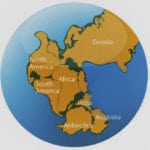 Music
Music  Music
Music  Space
Space 10 Asteroids That Sneaked Closer Than Our Satellites
 Sport
Sport The 10 Least Credible Superstars in Professional Sports
 Animals
Animals 10 Strange Times When Species Evolved Backward
 Facts
Facts Ten Unexpectedly Fascinating Facts About Rain
 Crime
Crime 10 Dark Details of Australia’s Gruesome Unsolved Wanda Murders
 Humans
Humans 10 Unsung Figures Behind Some of History’s Most Famous Journeys
 Animals
Animals 10 Species That Refused to Go Extinct
 Weird Stuff
Weird Stuff 10 Weird Things People Used to Do at New Year’s
 Our World
Our World 10 Archaeological Discoveries of 2025 That Refined History
 Music
Music 10 Chance Encounters That Formed Legendary Bands
 Space
Space 10 Asteroids That Sneaked Closer Than Our Satellites
 Sport
Sport The 10 Least Credible Superstars in Professional Sports
Who's Behind Listverse?

Jamie Frater
Head Editor
Jamie founded Listverse due to an insatiable desire to share fascinating, obscure, and bizarre facts. He has been a guest speaker on numerous national radio and television stations and is a five time published author.
More About Us Animals
Animals 10 Strange Times When Species Evolved Backward
 Facts
Facts Ten Unexpectedly Fascinating Facts About Rain
 Crime
Crime 10 Dark Details of Australia’s Gruesome Unsolved Wanda Murders
 Humans
Humans 10 Unsung Figures Behind Some of History’s Most Famous Journeys
 Animals
Animals 10 Species That Refused to Go Extinct
 Weird Stuff
Weird Stuff 10 Weird Things People Used to Do at New Year’s
 Our World
Our World 10 Archaeological Discoveries of 2025 That Refined History
10 Reasons War With ISIS May Be Inevitable
On November 13, 2015, three teams of attackers detonated bombs and opened fire in Paris, killing around 130 people. It was the deadliest terror attack on European soil since the 2004 Madrid train bombings. Within minutes, ISIS had claimed responsibility.
Also known as ISIL, Islamic State, and Daesh (a name they hate, which is why many use it), ISIS is the biggest, best-funded terror group in history. They control swaths of Iraq and Syria and have launched devastating attacks across the Middle East. Until the night of November 13, analysts thought the group’s reach was only local. In the wake of the tragedy in Paris, world leaders are having to quickly reconsider their positions toward the group. Already, full-blown war with the caliphate is starting to seem inevitable.
This isn’t to say that war is desirable or even certain. But there are signs that Paris may have been the tipping point. Since 2014, the conditions for an all-out conflict have been brewing in the Levant.
10Hollande’s Declaration
Following the November 13 attacks, French president Francois Hollande took to the airwaves to declare three days of national mourning. He didn’t beat around the bush. On learning that ISIS had claimed responsibility, he called the attacks an “act of war.”
This was not empty rhetoric. For a while now, France has been involved in a concerted campaign of air strikes against ISIS targets in Syria. Two days after explosions rocked Paris, French jets unleashed a maelstrom of bombing against the group’s Syrian stronghold in Raqqa. Twelve warplanes unloaded 20 bombs on a terrorist training camp and an ISIS munitions depot. According to a local anti-ISIS activist group—which opposes the airstrikes—Raqqa was badly hit, with entire buildings flattened.
It was a sign that France is willing to take a much larger role in the US-led coalition against ISIS. Others are already pushing for the action to go further. Turkey’s president Recep Tayyip Erdogan said the attacks showed the time for words was over. In the US, the Republicans led calls for thousands of American boots on the ground in Syria. While Hollande hasn’t yet indicated that France will be asking NATO for help, the mood in Paris has certainly shifted toward a war footing, as it has elsewhere.
9A Legal Basis
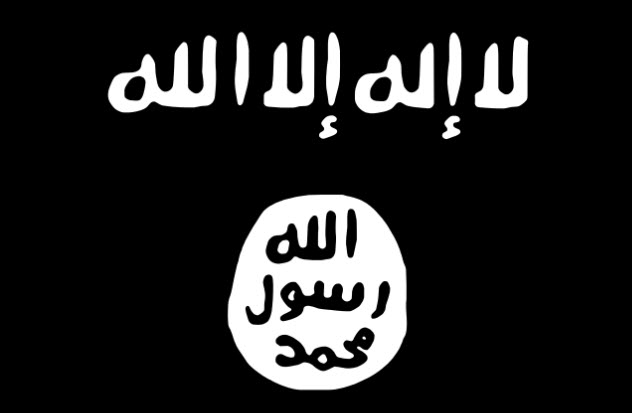
One of the biggest challenges facing hawks who want war with ISIS is that it may be illegal. International law makes taking violent action against another state a big no-no, even if the state in question (Syria) is unable to control the extremists in its midst. It also doesn’t help that ISIS’s self-proclaimed caliphate is unrecognized. A recent International Court of Justice ruling on Israel v. Palestine made it clear that self-defense cannot be used as a justification for attacking non-states.
That’s not to say that a war against ISIS is impossible. There are at least two ways that France might legally be able to start a large military action against Islamic State. One is to invoke Article 5 of the Washington Treaty. One of the founding principles of NATO, Article 5 makes an attack on one signatory an attack on all of them. This means that the White House can legally treat the Paris attacks as an attack on the US, which increases the likelihood of a full-scale intervention.
The second route is to ignore ISIS’s status as a “non-state.” The Washington Post’s legal correspondent claims that ISIS qualifies as a state-like entity at a minimum because of its seizure and effective control of large areas of Syria and Iraq. If you accept that the caliphate functions as a state, which it clearly does, then legally justifying a full invasion becomes a heck of a lot easier.
8Russian Interests
One of the reasons that the Syrian situation is so messy is the sheer number of competing interests at play. Aside from the multiple local factions, both Iran and Saudi Arabia are involved. More importantly from a US perspective, so is Russia.
Using the excuse of taking action against ISIS, Moscow has been sending planes to bomb anti-Assad rebels to shore up the dictator’s support. So far, the US and its allies have had to tread carefully in the region. A direct confrontation between the US and Russia is the sort of thing that could accidentally trigger World War III.
But the Paris attacks may have thawed relations between the leaders of these two powerful nations, at least on this issue. Following a G20 meeting in the immediate aftermath, Putin and Obama reached a historic agreement on the Syria situation.
At this stage, the agreement is fairly weak, just calling for the UN to negotiate a truce between Assad and anti-Assad rebels (excluding ISIS). But symbolically, it’s important. Until now, Putin’s greatest worry has been that the US will depose one of his allies and install a pro-Western regime in his place. With that concern eased by this agreement, the West is in a much better position to try to pressure Putin into taking strong action against ISIS.
Russia has clear interests in taking out Islamic State. ISIS has claimed they used a bomb to bring down a Russian plane recently, killing 224 civilians, although this hasn’t been confirmed yet. Still, the group has openly threatened Russia. Faced with such an immediate threat, Putin may yet change tactics and engage in an all-out war with the caliphate.
7Turkish Interests
Turkey’s role in Syria has been a confusing one. In August, it began bombing ISIS. Before that, it was bombing the Kurdish forces that are largely responsible for fighting ISIS. Signs are emerging that Ankara may no longer consider Kurdish separatists its primary threat. Since October 2015, President Erdogan has been pushing for the West to create an “ISIS-free zone” in northern Syria.
The reason for this is depressingly simple. On October 10, Ankara was targeted in twin suicide attacks that killed nearly 100 people. It was the deadliest bomb attack in Turkish history and is believed to have been the work of ISIS. Only one day after the Paris attacks, a suspected militant blew up an apartment in southeastern Turkey to avoid capture. Islamic State has vowed to continue targeting the country.
Until now, Turkish interests in Syria have been complicated by Ankara’s anti-Assad stance. With the Vienna agreement with Russia now in place, the path may be open for Turkey to be more directly involved. Already, Erdogan is pushing harder than nearly any other leader for strong action against the caliphate.
6ISIS Is Picking Fights With Everyone
Here’s a question: What do Hezbollah, Iran, Hamas, Al-Qaeda, and Saudi Arabia have in common? The answer is that they all have a common enemy: ISIS.
In the latter half of 2015, ISIS started picking fights with almost everybody on Earth. The day before the Paris attacks, ISIS bombed a marketplace in Beirut, killing 44 people. As a direct result, Hezbollah—long considered a terrorist organization—has declared a “long war” on ISIS, vowing to intensify its efforts in Syria. Only a few months earlier, the caliphate declared its own war on Hamas, promising to seize the Gaza Strip from them. ISIS also threatened Iran and in summer 2015, carried out suicide bomb attacks in Saudi Arabia.
With ISIS targeting so many different groups, war is almost inevitable, even if the West ultimately chooses not to get involved. This isn’t the intelligent building of alliances that characterizes most insurgent groups, such as when the IRA conducted joint training exercises with Colombia’s FARC. This is the sort of thing that only a crazy cult with a death wish could possibly think is a good idea. Even Al-Qaeda is now attacking and destroying ISIS targets. This raises the question: What exactly does ISIS want?
5ISIS Wants A War
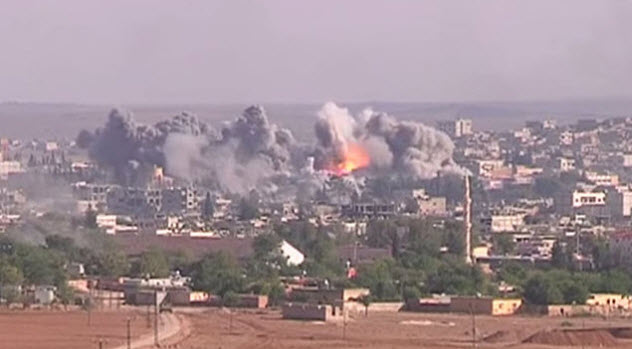
When Hollande called the Paris attacks an “act of war,” he was being 100 percent literal. ISIS isn’t interested in taking revenge or making Westerners too scared to leave their homes. Unlike bin Laden, they don’t want specific political concessions in return for their violence. They want to start an apocalyptic, regional war.
We’ve known as much since 2014 when ISIS’s high command responded to the first US air strikes by publicly castigating Obama for not putting troops on the ground. Instead of being scared of an invading American army, ISIS would welcome it. Speaking to the BBC, Dr. Peter Neumann, Director of the International Center for the Study of Radicalization, claimed that this would legitimize their narrative of victimization. They would paint the invading forces as the start of a new crusade and try to depict the West as being against every Muslim on Earth. As far as they’re concerned, war would be a propaganda coup.
Then there’s the small fact of the apocalypse. ISIS literally believes they’re working to bring about the end of the world. Central to their narrative is a destructive, final battle that they’re desperate to kick off. They want a war and will use any means to get it.
4There Will Be More Attacks
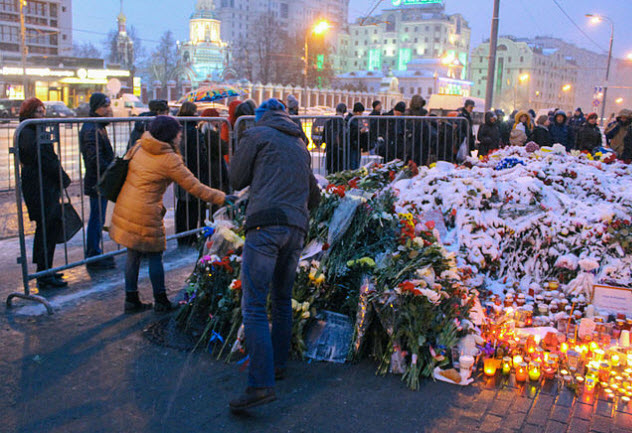
ISIS doesn’t launch random attacks. Their actions are designed to cause maximum publicity while getting them closer to their goals. To ensure this happens, they work from a very specific rule book.
Written a decade ago by Abu Bakr Naji, it goes by the name of The Management of Savagery/Chaos. The tract tells fighters to focus on soft targets, such as the ones hit in the Paris attacks. It tells recruiters to sign up young men and teenagers and put their natural rebelliousness to use. It tells commanders to force the US to abandon the psychological and media war and commit to boots on the ground.
Until this last goal is achieved, attacks following the playbook’s rules will continue. The point of this is to destroy something called the “Gray Zone.” First articulated in an ISIS magazine editorial in 2015, it’s the state most of the world’s Muslims allegedly exist in—neither fully supporting Western actions in the Middle East nor fully supporting Islamic extremists. The stated goal of ISIS’s attacks is to force these Muslims’ hands. To make them choose unequivocally between Islam or Western society. Then the war can begin.
Most reasonable people would say that the choice ISIS is trying to force is nonexistent. The point of these attacks is to create it. Every time a radical imam preaches hate against the West or celebrates an attack, it helps ISIS. Every time someone responds to an atrocity by calling for all Muslims to be deported, it plays into the caliphate’s hands. The group has a long-term goal. Until they get their war, attacks such as these will continue.
3Air Strikes Aren’t Working
In August 2014, the US began its campaign of air strikes against Islamic State. Since then, the American-led coalition has launched 5,000 separate air strikes against the caliphate, killing over 10,000 fighters. By any measure, this should be considered a deadly blow against the terror group. But evidence suggests otherwise. In August 2015, American intelligence agencies declared that ISIS was no weaker after a year of air strikes than it had been before.
This isn’t to say that air strikes have been completely useless. Although ISIS is no weaker, they are no stronger, either. When air strikes began, ISIS seemed to be on the verge of taking over all of Iraq. Since then, their territory has mostly stayed static or even slightly shrunk. Russian bombing—which tends to be heavier and more indiscriminate than Western-style surgical strikes—has also applied pressure on the group in recent months, even if most Russian targets have been outside ISIS territory.
On the other hand, ISIS is no closer to collapsing and has undoubtedly grown in influence. Until recently, it was thought that the group had no capacity to strike outside the Middle East. Paris shows that their reach is much greater than we thought, even after 15 months of sustained bombing. Although air strikes may be keeping the beleaguered Iraqi state afloat, the effectiveness of this type of military action is clearly limited.
2Ground Action Is The Only Thing That Is Working
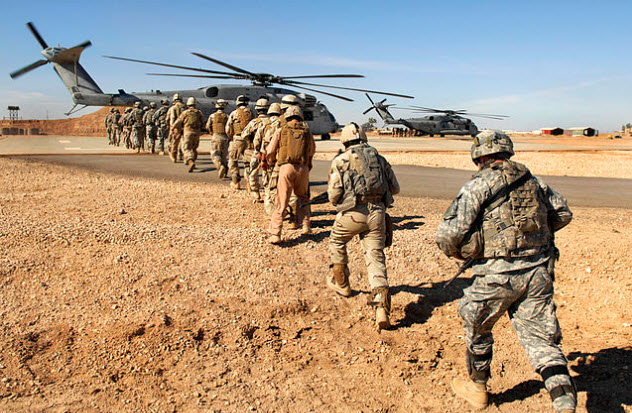
With all the focus on the attacks in Paris, it’s easy to forget that November 13 was actually a bad day for ISIS. In Iraq, a combination of Kurdish peshmerga, Kurdish communist, and Yazidi fighters retook the city of Sinjar from Islamic State. Backed by US airpower, nearly 10,000 troops marched on the city that ISIS had held for 15 months. Within hours, the local branch of the caliphate had fallen after offering only token resistance.
This was a crushing defeat for the terror group. Sinjar and its surrounding area functioned as a major jihadist supply route between Syria and the key, ISIS-held, Iraqi city of Mosul. Losing it so easily was nothing short of embarrassing. It also highlighted an uncomfortable truth about the conflict with ISIS. When ground troops get involved, things tend to turn out badly for the caliphate.
Already, Kurdish forces are preparing to liberate Mosul, with the UN expecting a wave of refugees if the city falls. Ground troops have retaken snatches of surrounding Kurdish territory, and things aren’t looking rosy for ISIS’s isolated Iraqi faction. If Mosul is liberated, the group will likely have to fall back to Syria.
When that happens, no one is sure where things will go next. The Kurdish troops are liberating their own territory and probably won’t be able to chase ISIS all the way across Syria. But with air strikes proving indecisive, a ground force in some shape or form may be desperately needed.
1The Current Situation Can’t Hold
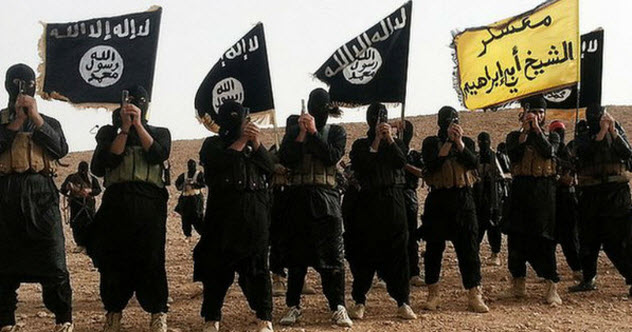
In late September 2015, General Martin Dempsey, outgoing chairman of the Joint Chiefs of Staff, said the ISIS situation in Syria had hit a “stalemate.” Since then, it’s become clear how right he was. With dozens of competing interests in the region, most equally matched, there seems to be no conceivable way out of this current deadlock. Iraq may be slowly pushing ISIS out, but in Syria, the mess is as static as ever.
As recently as early November 2015, Western leaders were generally ready to accept that fact, even if they didn’t like it. But the Paris attacks—along with the possible ISIS bombing of a Russian plane—have changed everything. This is no longer a regional war that can be contained until a solution presents itself. It’s a regional war that’s causing death and destruction across the globe. If the current situation holds, there will only be more meaningless deaths.
It’s tricky to say what the right call is. Except for a small number of special forces, the Obama White House seems much more interested in arming Kurds and sharing intelligence than committing to boots on the ground (except for a small number of special forces). The president is concerned that going to war in another Middle Eastern country may drag the US into a quagmire from which it can’t extricate itself. On the other hand, doing nothing risks turning him into the Neville Chamberlain of our time.
The trouble is, nobody knows for sure. It may be that American troops will ultimately end the ISIS threat. Then again, maybe the answer is a Russian grand alliance with countries like Iran, heavily armed Kurdish rebels, or a French-led NATO invasion. It may be that another war only makes things worse, sowing the seeds for something even worse than ISIS to rear its ugly head.
In short, we don’t know. But the current situation is unsustainable.



